Use Character To Appearance To Do More:
Use character to appearance to do more:
They say don’t judge a book by it’s cover, but appearance sure can say a lot. Unfortunately when writing (or even drawing) it is more than easy to forget that factor. Using character appearance to describe the world, add personality to the character, and give the reader more information does wonders.
It makes sneaking in character appearance much easier, and gives the writer plenty of chances to expand on the world on their page.
Things you can use character appearance to do (but not limited to)
Hint at a character’s economic status
Add personality to a character
Add to a character’s backstory
Make notes about a character’s health
Worldbuild the fashion
Describe a character’s occupation
Make references to a character’s passion or hobby
Hint at a character’s relationship status
How a character feels about their own appearance
Family relations
Hint at a character’s education
Subvert expectations
Explore character’s potential gender identity
Align the character alongside dynamics or trope
Explain the time frame the story takes place in
Hint at the level of technology in a world
Describe a character’s culture, race, ethnicity, etc.
More Posts from Nefaralous and Others
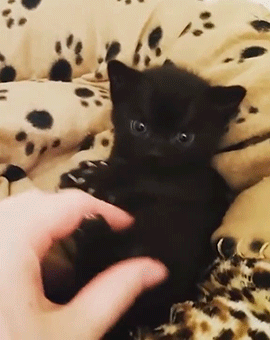
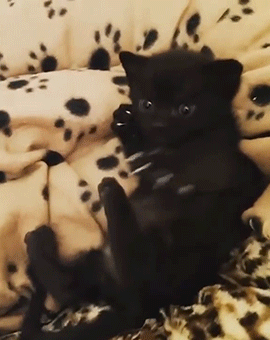
♡
Was thinking about why the fae would want to swap children or take humans to their realm and I've come to the conclusion that it's mostly about lying.
A human can tell you you're the most beautiful thing they've ever seen. Or make a less hurtful excuse for why they don't want to do something when theyre upset with you for something you can't control.
I imagine fae toddlers are just as insufferable as human toddlers with their questions and demands, but not being able to (harmlessly) lie and say things like "blue's clues went bed because she needs rest just like you" would be incredibly unpleasant.
I imagine the fae want good liars, and admire the human ability to lie. They want secretaries who can say their schedule's full, messengers who can deceive their enemies.
I think it would be really funny if one of the Fair Folk became fascinated with affirmations and decided the favor some mortal owed them was saying their morning affirmations for them because they can't.

Shalom Harlow by Ellen von Unwerth, 1993
Tandy constantly flirting with Tyrone and him being exasperated but pleased

Dappled sunlight streams through the trees. The filtered light warms the skin I bare to nature, clothes haphazardly shed and forgotten, a bread crumb trail leading to the blue lake. Wading into the water, I wash away the dirt and sweat dried to my skin- cleansing away my sins better than any baptism could ever hope to achieve.
- salvation.


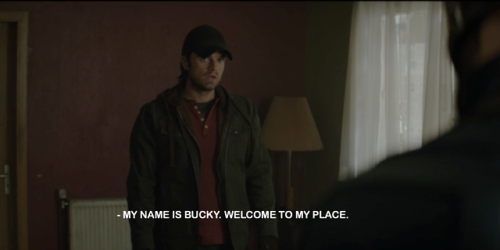
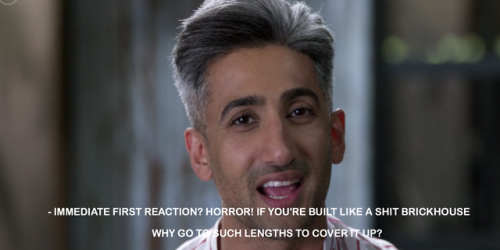
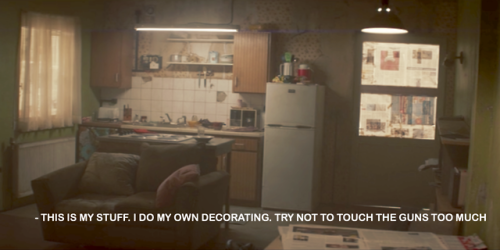
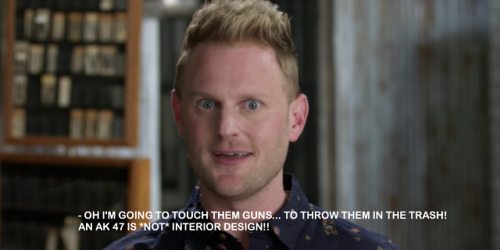
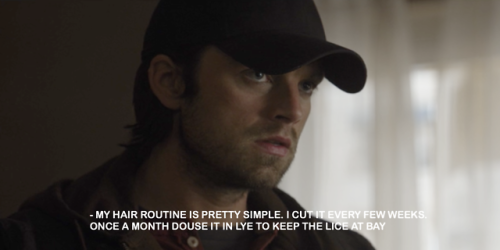
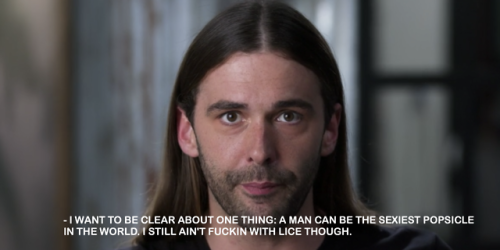
and the end result:

bonus:

3 tips to writing character flaws
1) make their flaw congruent with the rest of who they are.
There’s a lot of different ways to do this, most commonly I’ve seen the “their strength is their flaw” which you can do but I’d recommend exploring it more deeply.
For example, maybe they’re good at attacking things head on, being honest and straightforward, but because they’ve always relied on that they don’t have the practice or an inclination to rely on other methods such as being more crafty, diplomatic, and subtle which are traits a situation sometimes calls for. I call this the “wrong tool for the job” flaw where an over-reliance on their strength handicaps them in situations where a different approach seems better suited. I think people and characters also just have a habit of using their tool for the job rather than the ‘best’ tool.
2) Don’t just tell us their flaw, show it.
Show this character trait coming out in their actions, have it influence the plot in key moments. If they’re reckless, don’t just have another character call them reckless, have them act reckless in a way that impacts their relationships with other characters or the plot.
3) Screw the whole “strengths vs flaws” thing altogether
try viewing character traits outside of a rigid binary of good and bad that you pull from a deck, and instead derive/connect them to deeper truths about who the character is, (how do they deal with problems/what is their ‘go-to’ method? what do they value? what are they skilled or unskilled at? what do they believe about the world and themselves?) and then why the characters is that way (note that it doesn’t all have to come from trauma. Please don’t attribute everything to a trauma. General life experience informs a lot of beliefs/traits, and then some is also just an inborn inclination) I have a longer post about how I tend to try to build a cohesive layout of who a character is.
Note as always, that these just things that I currently find helpful. Use or discard as works for you and your work. Happy writing!
Currently working on a short story about two people who dated back in college meeting up to talk over coffee after losing contact for a few years. Things ended badly between the two and one of them is hoping to discuss things to finally get closure, but sometimes things just aren’t that simple.
concept: instead of hedwig, Harry goes into the pet store and this little snake in the back of the store talks to him, obviously gets his attention more than the other animals, and harry feels sorry for it so he takes it home. Then the snake helps Harry throughout his years at hogwarts as harry carries it wrapped around his hand all like “pssssst, haaarryyy, the dark lord isss coming sss” or just petty shit like “haaaarrryy, now is the time, assskkk out cho chaaannngg”
🌸Describing Scents For Writers 🌸| List of Scents
Describing aromas can add a whole new layer to your storytelling, immersing your readers in the atmosphere of your scenes. Here's a categorized list of different words to help you describe scents in your writing.
🌿 Fresh & Clean Scents
Crisp
Clean
Pure
Refreshing
Invigorating
Bright
Zesty
Airy
Dewy
Herbal
Minty
Oceanic
Morning breeze
Green grass
Rain-kissed
🌼 Floral Scents
Fragrant
Sweet
Floral
Delicate
Perfumed
Lush
Blooming
Petaled
Jasmine
Rose-scented
Lavender
Hibiscus
Gardenia
Lilac
Wildflower
🍏 Fruity Scents
Juicy
Tangy
Sweet
Citrusy
Tropical
Ripe
Pungent
Tart
Berry-like
Melon-scented
Apple-blossom
Peachy
Grape-like
Banana-esque
Citrus burst
🍂 Earthy & Woody Scents
Musky
Earthy
Woody
Grounded
Rich
Smoky
Resinous
Pine-scented
Oak-like
Cedarwood
Amber
Mossy
Soil-rich
Sandalwood
Forest floor
☕ Spicy & Warm Scents
Spiced
Warm
Cozy
Inviting
Cinnamon-like
Clove-scented
Nutmeg
Ginger
Cardamom
Coffee-infused
Chocolatey
Vanilla-sweet
Toasted
Roasted
Hearth-like
🏭 Industrial & Chemical Scents
Metallic
Oily
Chemical
Synthetic
Acrid
Pungent
Foul
Musty
Smoky
Rubber-like
Diesel-scented
Gasoline
Paint-thinner
Industrial
Sharp
🍃 Natural & Herbal Scents
Herbal
Aromatic
Earthy
Leafy
Grass-like
Sage-scented
Basil-like
Thyme-infused
Rosemary
Chamomile
Green tea
Wild mint
Eucalyptus
Cinnamon-bark
Clary sage
🎉 Unique & Uncommon Scents
Antique
Nostalgic
Ethereal
Enigmatic
Exotic
Haunted
Mysterious
Eerie
Poignant
Dreamlike
Surreal
Enveloping
Mesmerizing
Captivating
Transcendent
I hope this list can help you with your writing. 🌷✨
Feel free to share your favorite scent descriptions in the replies below! What scents do you love to incorporate into your stories?
Happy Writing! - Rin T.
-
 zephyrneko liked this · 1 month ago
zephyrneko liked this · 1 month ago -
 nefaralous reblogged this · 3 months ago
nefaralous reblogged this · 3 months ago -
 flavor-aid-sekt liked this · 4 months ago
flavor-aid-sekt liked this · 4 months ago -
 miskhalie liked this · 5 months ago
miskhalie liked this · 5 months ago -
 rainy-dayz55 liked this · 6 months ago
rainy-dayz55 liked this · 6 months ago -
 browhathalpenedtomyod liked this · 8 months ago
browhathalpenedtomyod liked this · 8 months ago -
 mint-yoongie liked this · 11 months ago
mint-yoongie liked this · 11 months ago -
 blessedbyaphrodite777 liked this · 1 year ago
blessedbyaphrodite777 liked this · 1 year ago -
 haileyquinnzel liked this · 1 year ago
haileyquinnzel liked this · 1 year ago -
 sizzlesx liked this · 1 year ago
sizzlesx liked this · 1 year ago -
 thepufflepuff liked this · 1 year ago
thepufflepuff liked this · 1 year ago -
 rtc0204 reblogged this · 1 year ago
rtc0204 reblogged this · 1 year ago -
 rtc0204 liked this · 1 year ago
rtc0204 liked this · 1 year ago -
 writingpalace reblogged this · 1 year ago
writingpalace reblogged this · 1 year ago -
 chaoticsumi liked this · 1 year ago
chaoticsumi liked this · 1 year ago -
 humble-writer liked this · 1 year ago
humble-writer liked this · 1 year ago -
 nerdy-chocomallow liked this · 1 year ago
nerdy-chocomallow liked this · 1 year ago -
 write-101 reblogged this · 1 year ago
write-101 reblogged this · 1 year ago -
 magicthelegendary liked this · 1 year ago
magicthelegendary liked this · 1 year ago -
 parasitebunny liked this · 1 year ago
parasitebunny liked this · 1 year ago -
 a-humandisaster liked this · 1 year ago
a-humandisaster liked this · 1 year ago -
 godofwarotabekaltin liked this · 1 year ago
godofwarotabekaltin liked this · 1 year ago -
 fluryflaneurs liked this · 1 year ago
fluryflaneurs liked this · 1 year ago -
 b1ngo0dyssey liked this · 1 year ago
b1ngo0dyssey liked this · 1 year ago -
 inkdelicious reblogged this · 1 year ago
inkdelicious reblogged this · 1 year ago -
 oa-trance liked this · 1 year ago
oa-trance liked this · 1 year ago -
 cospox liked this · 1 year ago
cospox liked this · 1 year ago -
 ef510mw9msn872728 liked this · 1 year ago
ef510mw9msn872728 liked this · 1 year ago -
 unaccountablity liked this · 1 year ago
unaccountablity liked this · 1 year ago -
 444nicole liked this · 1 year ago
444nicole liked this · 1 year ago -
 awritertosatisfythemind liked this · 1 year ago
awritertosatisfythemind liked this · 1 year ago -
 awritertosatisfythemind reblogged this · 1 year ago
awritertosatisfythemind reblogged this · 1 year ago -
 tatiwattpad liked this · 1 year ago
tatiwattpad liked this · 1 year ago -
 writeb1tchwrite reblogged this · 1 year ago
writeb1tchwrite reblogged this · 1 year ago -
 diamondstripe1 liked this · 1 year ago
diamondstripe1 liked this · 1 year ago -
 opalfairy410 liked this · 1 year ago
opalfairy410 liked this · 1 year ago -
 proxecxion liked this · 1 year ago
proxecxion liked this · 1 year ago -
 cautiontime liked this · 2 years ago
cautiontime liked this · 2 years ago -
 vrynnvryxivia liked this · 2 years ago
vrynnvryxivia liked this · 2 years ago -
 chaosinitiate liked this · 2 years ago
chaosinitiate liked this · 2 years ago -
 aaustinwrites reblogged this · 2 years ago
aaustinwrites reblogged this · 2 years ago -
 spoiler-warning liked this · 2 years ago
spoiler-warning liked this · 2 years ago -
 doubtsdoubt liked this · 2 years ago
doubtsdoubt liked this · 2 years ago -
 martialwriter liked this · 2 years ago
martialwriter liked this · 2 years ago -
 niemza-blog1 liked this · 2 years ago
niemza-blog1 liked this · 2 years ago -
 hangingaround2 liked this · 2 years ago
hangingaround2 liked this · 2 years ago -
 haydenigmatic liked this · 2 years ago
haydenigmatic liked this · 2 years ago
